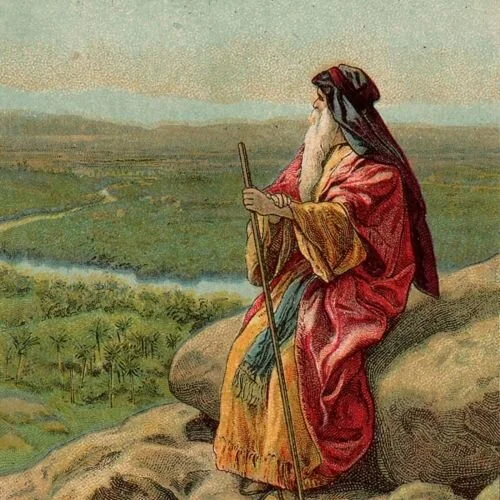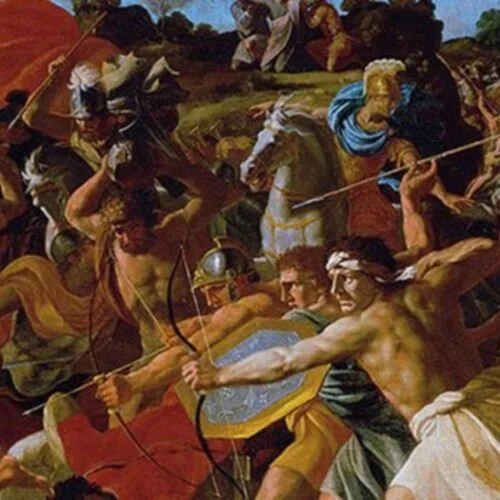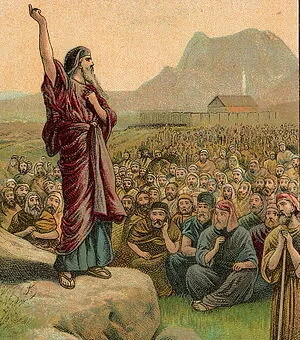The Original Dispute
This week, we start the Torah over again, from the beginning, with Bereshit. And that means, we get to revisit the original dispute of the Torah—not between Cain and Abel, but between the Aleph and the Bet, the letters that is.
Let it Rain
At the end of Sukkot, Jews around the world make a small change to our routine of daily prayers. Beginning on Shmini Atzeret, we add a request for rain to the second blessing of the Amidah—the core of our prayer service that we recite three times each day. This prayer, though, doesn't just ask G-d for rain, but for rain in its proper season.
My Favorite Jewish Holiday
Sukkot is hands down, my favorite Jewish holiday, a season when we're commanded to gather and rejoice, in the middle of what has always been my personal season of joy. This year, of course, feels different, but the perspective makes me appreciate a little recognized Sukkot ritual which has always felt particularly odd to me.
A Change in Tune
This week, as we sit between Rosh Hashanah and Yom Kippur, Moses is wrapping up his final speech when he suddenly breaks into song.
L’Shana Tova
Every year, on the first day of Rosh Hashanah, the traditional Torah reading presents an odd start to the New Year—a portrait of extreme duality. Two women, one ecstatic with joy, the other paralyzed by sorrow. As we turn the page to a fresh season, what can we learn from these stories our tradition highlights on Rosh Hashanah?
Choosing a New Leader
As Moses approaches his own death, he's increasingly concerned with who will influence the Israelites after he's gone. Throughout their time in Canaan, at times of need, prophets arose to lead the Israelite people. But how are the people, warned repeatedly by Moses to be wary of corrupt leaders, supposed to discern a true prophet from a false one?
With a Loud Voice
Last week, over 600 Jewish organizations raised their voices as one, to make a simple statement. Black Lives Matter. Twice, in our portion this week, the Torah indicates that injustice stemming from actions committed in darkness and secrecy should be met with outrage—loudly and publicly.
Just Because You Can
This week, the Torah presents a series of challenging laws, many of which challenge our modern sense of morality, at least on first glance. One particularly distasteful law until the rabbis of the Talmud create a series of rules and protocols that make it highly unlikely, in fact nearly impossible, for that particularly troublesome law to ever be put into practice.
“Justice, Justice Shall You Pursue”
In Parshat Shoftim, Moses reviews the judicial code that will govern Israelite society in the Land of Canaan, and he starts, with a passionate call to action, commanding the People, “justice, justice shall you pursue.”
Freedom to Rest
This week is Shabbat Nachamu, Shabbat of Comfort, and our Torah portion this week finds Moses recounting the experience at Sinai, including the 10 Commandments, to the Israelites community, on the eastern bank of the Jordan River. But the version of the 10 Commandments Moses shares is slightly different from the version in Exodus. And, as you might imagine, the differences are interesting.
Changing the Narrative
This week's Torah portion finds the Israelites camped on the Jordan River's eastern bank. Before crossing the river into Canaan, Moses gathers the people for one last, long teaching, his famous speech that comprises most of Deuteronomy. In the beginning of his speech, as he's just warming up, Moses does a funny thing, he subtly changes the narrative of history to place himself in a better light.
Booty & Spoil
The Israelites loot and raze cities as they wage total war against the idolatrous Midiante and Moabite peoples. After the slaughter, they gather the booty and spoil of battle, including captive slaves, and bring it to the Israelite camp, where G-d commands it be equitably divided among the Israelite nation. What can we take away, today, from these violent and destructive portions?











